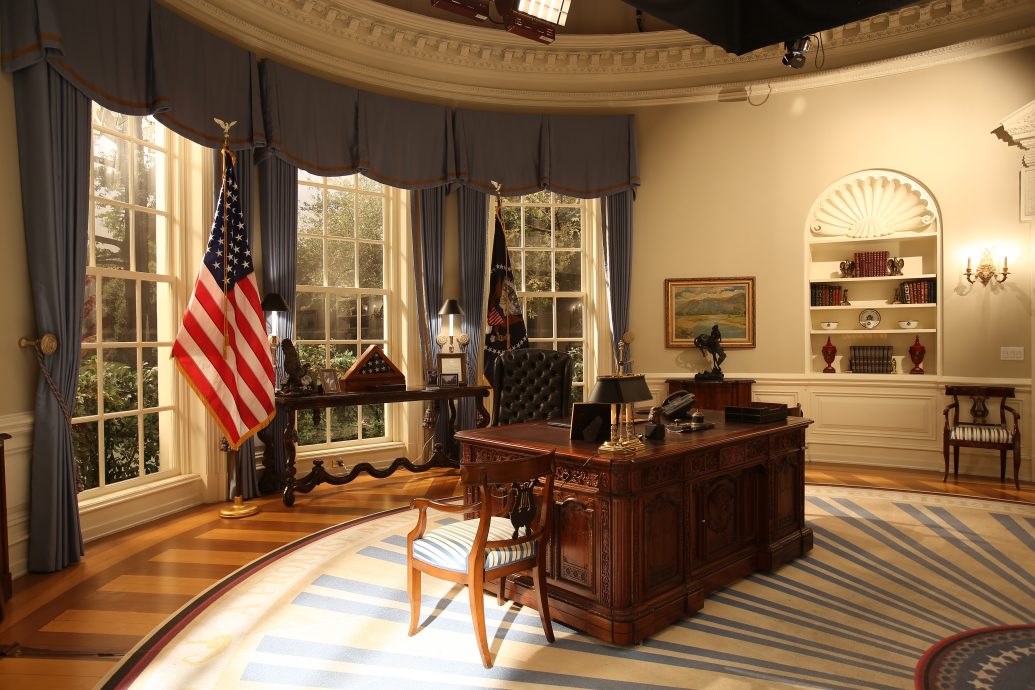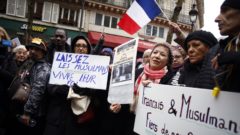The French can provide a form of common life in which all, including their fellow Muslim citizens, can recognize themselves.
Obama’s Less Orwellian Terrorism Speech
On the day before the Pearl Harbor anniversary (which he did not reference), President Obama admitted that “Our nation has been at war with terrorists since Al Qaeda killed nearly 3,000 Americans on 9/11,” including horrors that his Administration previously dismissed as workplace violence. While much of what he said seemed to deny the reality of war, the last fourth of the speech raises the key question of what Muslims owe the rest of the world in this time of war.
Predictably, the speech repeated Obama’s signature call for unity, while brandishing partisan daggers of gun and border control against Republicans. But on the San Bernardino terrorists themselves he was not as infuriating as he was the day before when he theorized in his weekly radio address, “It is entirely possible that these two attackers were radicalized to commit this act of terror. And if so, it would underscore a threat we’ve been focused on for years—the danger of people succumbing to violent extremist ideologies.” In his classic essay, “Politics and the English Language,” Orwell reminded us of the perils of the passive voice—isn’t the important thing here who was doing the radicalizing and spreading “violent extremist ideologies”? But being on “the right side of history” absolves one of a lot of responsibility.
Obama is notorious for constantly insisting that the terrorists are really not Muslim. And while there may well be diplomatic reasons for such rhetoric, it has encouraged misunderstanding of the real issue among Americans. Obama’s defenders, such as William Saletan, insist there are good reasons for us to trust his distinctions. Obama contends that the overwhelming majority of Muslims disown the terrorists: “… an extremist ideology has spread within some Muslim communities. It’s a real problem that Muslims must confront without excuse.” Would this “real problem” require a return to the Muslim Enlightenment of the 10th century brought on by Muslim philosophers such as Al-Farabi and Averroes? Is that all Obama is asking? For serious discussion of the profound differences between Islam and Christianity see the writings of Remi Brague and Robert Reilly. Presumably Obama means something less than such a counter-revolution.
As fuzzy as Obama is on the Muslim responsibility, and how it is to be encouraged, he is stern about American obligations: What Americans need to do is not to discriminate against Muslims—as though they have been subjected to post-9/11 San Bernardino-Chattanooga-Ft. Hood murders:
“[I]it is the responsibility of all Americans, of every faith, to reject discrimination. It is our responsibility to reject religious tests on who we admit into this country. It’s our responsibility to reject proposals that Muslim-Americans should somehow be treated differently. Because when we travel down that road, we lose.”
“My fellow Americans, I am confident we will succeed in this mission because we are on the right side of history. We were founded upon a belief in human dignity that no matter who you are, or where you come from, or what you look like or what religion you practice, you are equal in the eyes of God and equal in the eyes of the law.”
Here Obama’s obliviousness to the differences between Islam and Christianity proves a stumbling block. He would deny that Islam is a political religion that unites theological and political commands. What would Obama say about a former student of mine from Egypt, a seemingly cosmopolitan young man, who nonetheless agreed with the overwhelming majority of his countrymen that converts from Islam should be put to death? Americans today, with the founders, would reject any notion that such barbarity should be tolerated under the guise of freedom of religion. How can Americans be open to accepting Middle East refugees—not necessarily because there would be ISIS agents among them, but because they would find freedom of conscience and religious toleration alien notions and might thus be more vulnerable to the blandishments of those “violent extremist ideologies.”
Obama thus distorts what should be our guide here, George Washington’s famous letter to the Hebrew congregation at Newport.
We can be more than tolerant, Washington observed, because both American Christians and American Jews believe in equal natural rights—the political agreement on constitutional government precedes toleration. American Catholics were able to refute the Protestant charge of political infidelity (Popery) by their loyalty. Unfortunately, Muslim immigrants may struggle mightily to reject the “extremist ideology” promoted by some of their clergy and adherents. (Here, it would be amusing, if it were not deadly serious, that Obama turns a blind eye toward Muslim views of homosexuality and the status of women.)
As Obama has stated of his frustrations as a President, it is not as easy as it looks: that applies to combating domestic terrorism as well.



